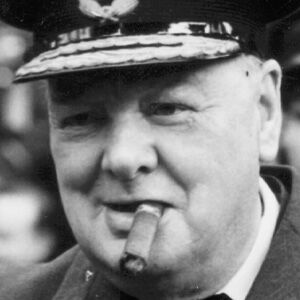
“A Law of History”
Today we hear many academic voices telling people that learning history is of little or no value. This is an extremely dangerous trend that may be too entrenched to correct.
This educational plague is rampant among the American and British peoples. And it seems that very few of our leaders understand what a colossal disaster it is!
Syndicated columnist George Will wrote this in his Dec. 23, 2001, column: “When history is taught at all nowadays, often it is taught as the unfolding of inevitabilities—of vast, impersonal forces. The role of contingency in history is disparaged, so students are inoculated against the ‘undemocratic’ notion that history can be turned in its course by great individuals” (Times Union, emphasis mine throughout).
He then implied that America probably would not have been born without the bravery and leadership of George Washington. We came dangerously close to losing the Revolutionary War. Mr. Will wrote,
Two hundred twenty-five Christmases ago, history was being made around here. And recently Lynne Cheney … came here to advocate teaching history more extensively and more wisely than we currently do. …
Cheney stressed that events around Christmas 1776 demonstrate “that this nation was not inevitable.” General Washington, commanding ill-fed, ill-clad and barely trained forces against the world’s mightiest power, had been in retreat, as he would be much of the war. By Christmas night 1776 he desperately needed a victory and got one with the surprise attack on Trenton. … The human story would have had different contours if the bullets that sliced through his clothing during the French and Indian War had struck him.
Great individuals do turn the course of history! Mr. Will continued,
Cheney recalled a 1999 survey of college seniors at 55 elite colleges, from Princeton to Stanford, which revealed that only 22 percent knew that the words “government of the people, by the people, for the people” are from the Gettysburg Address. Forty percent could not place the Civil War in the second half of the 19th century. … Twenty-five percent thought the pilgrims signed the Magna Carta on the Mayflower. … To the question of who commanded American forces at Yorktown, the most frequent answer was Ulysses S. Grant.
Such questions should not be difficult for high school seniors. But at the time of the survey, none of the 55 colleges and universities required a course in American history. And students could graduate from 78 percent of them without taking any history course.
What a disturbing survey! Most of the students—78 percent—didn’t have to take even one history course!
Why is this information so shocking? Here is Mr. Will’s conclusion: “[A]s Madison [one of America’s Founding Fathers and former president] said, in words inscribed on a Princeton building, ‘a well-instructed people alone can be permanently a free people.’”
Are we about to lose our freedom? The answer is a resounding yes! If we don’t wake up we’re going to lose our freedom and a lot more!
One of Winston Churchill’s greatest biographers, William Manchester, said that Churchill “saved Western civilization”—not just Britain and Europe. More accurately, Mr. Churchill was used by God to save Western civilization.
How important is it that we learn from that civilization-saving history?
Henry Steele Commager wrote an introduction to Winston Churchill’s biography of his ancestor, Marlborough. In it Mr. Commager wrote,
… Churchill’s reading of history reinforced his early education to exalt the heroic virtues. He was Roman rather than Greek, and as he admired Roman accomplishments in law, government, empire, so he rejoiced in Roman virtues of order, justice, fortitude, resoluteness, magnanimity. These were British virtues too, and, because he was the very symbol of John Bull, Churchillian. He cherished, as a law of history, the principle that a people who flout these virtues is doomed to decay and dissolution, and that a people who respect them will prosper and survive.
Learning lessons from great leaders of the past is critical to our national well-being. If we flout those heroic virtues of history, our nations are “doomed to decay and dissolution.” But if we respect and emulate them, we “will prosper and survive.”
That is “a law of history.” Our national survival is at stake!
